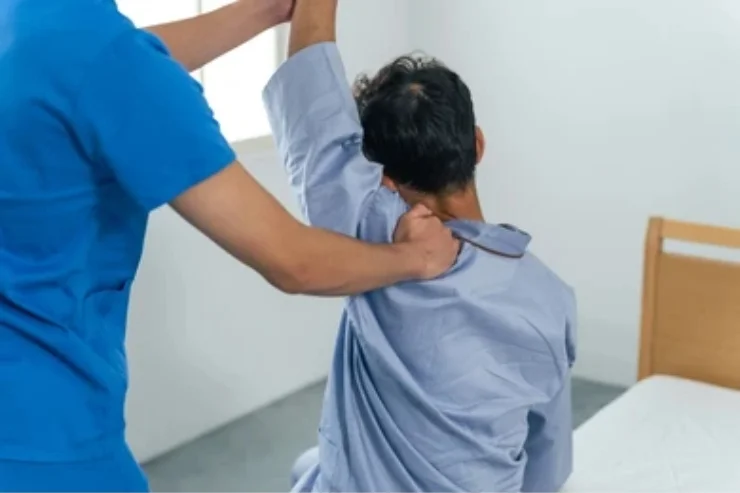
Frozen shoulder, medically known as adhesive capsulitis, is a painful and progressive condition that leads to stiffness and restricted range of motion in the shoulder joint. It typically develops gradually and can occur after an injury, surgery, or prolonged immobilization. In some cases, it may be associated with medical conditions like diabetes, thyroid disorders, or hormonal imbalances. The hallmark of frozen shoulder is the thickening and tightening of the shoulder capsule, leading to pain, inflammation, and difficulty in performing simple activities such as combing hair, reaching overhead, or dressing. The condition usually evolves in three stages — freezing, frozen, and thawing — each with its own challenges in terms of pain and movement.
Effective frozen shoulder therapy begins with a comprehensive clinical assessment to determine the stage and severity of the condition. In the early (freezing) stage, pain management is a top priority. This may include anti-inflammatory medications, cold or heat therapy, and corticosteroid injections to reduce inflammation. Physiotherapy is the cornerstone of treatment across all stages, focusing on gentle, progressive stretching exercises to restore mobility and reduce stiffness. Manual therapy, joint mobilization, and supervised movement routines play a crucial role in regaining shoulder function. For some patients, techniques like ultrasound therapy or transcutaneous electrical nerve stimulation (TENS) may also provide symptomatic relief.
In cases where conservative treatments do not yield satisfactory results, more advanced interventions may be considered. These include hydrodilatation (joint distension using saline and steroid injections), manipulation under anesthesia (MUA), or arthroscopic capsular release, all designed to loosen the tightened capsule and restore motion. Post-procedure rehabilitation is critical to maintaining and improving range of motion. Patient education and consistent home exercise programs are essential to prevent recurrence and promote long-term shoulder health. The goal of frozen shoulder therapy is not just pain relief, but also full restoration of shoulder function, enabling patients to return to daily activities and enjoy a better quality of life.
Rishi’s Indo American Pain Center, a premier destination for comprehensive orthopedic solutions and advanced pain management therapies.